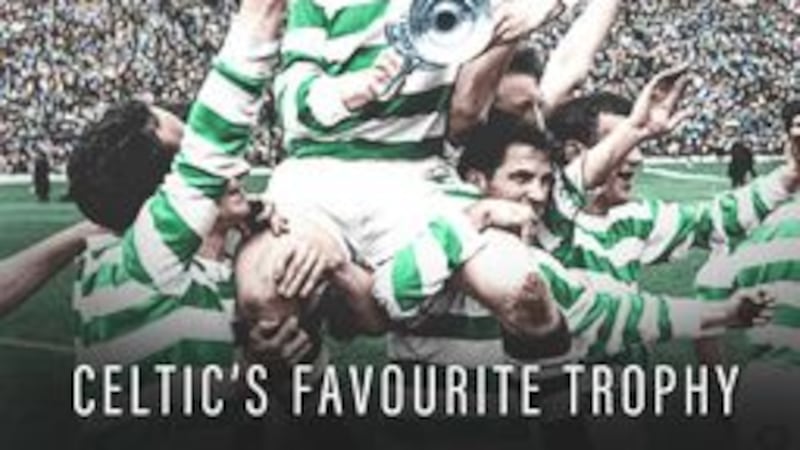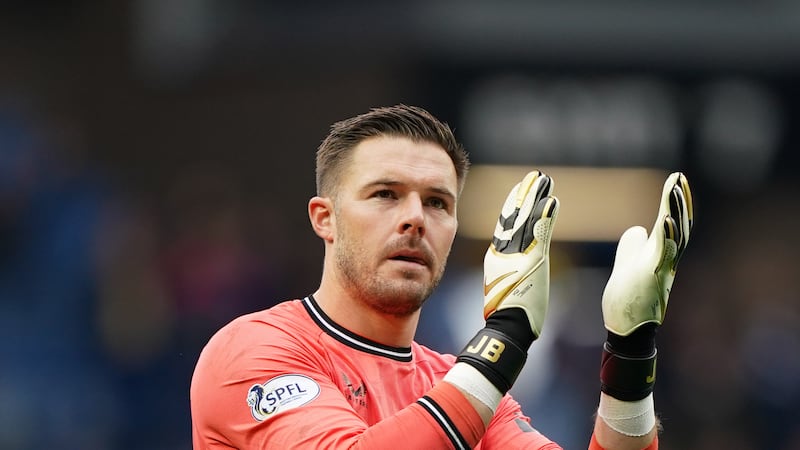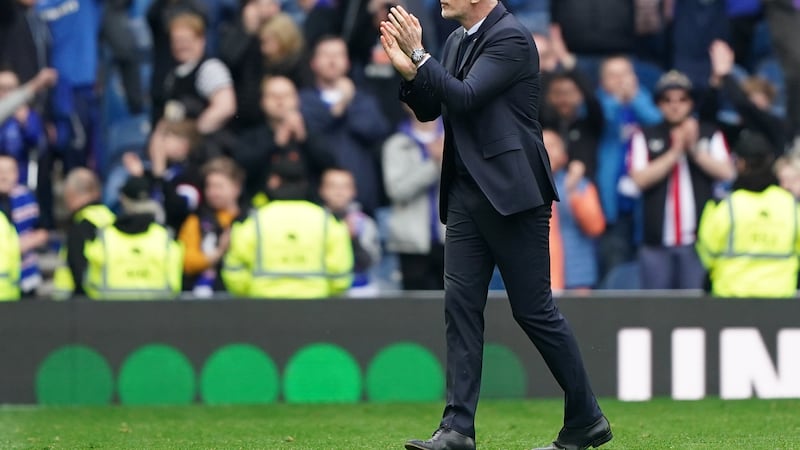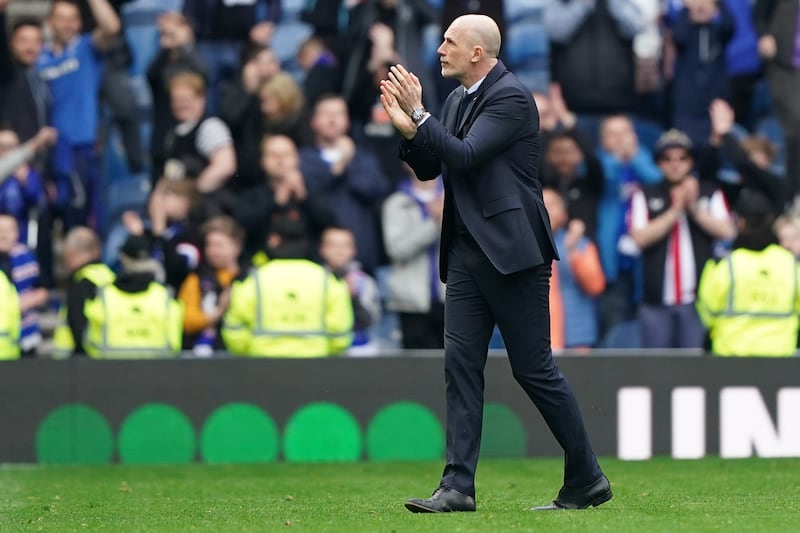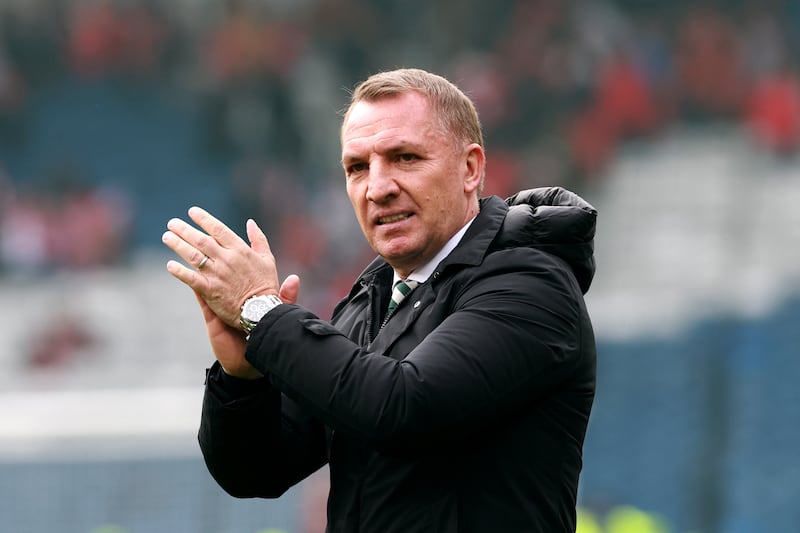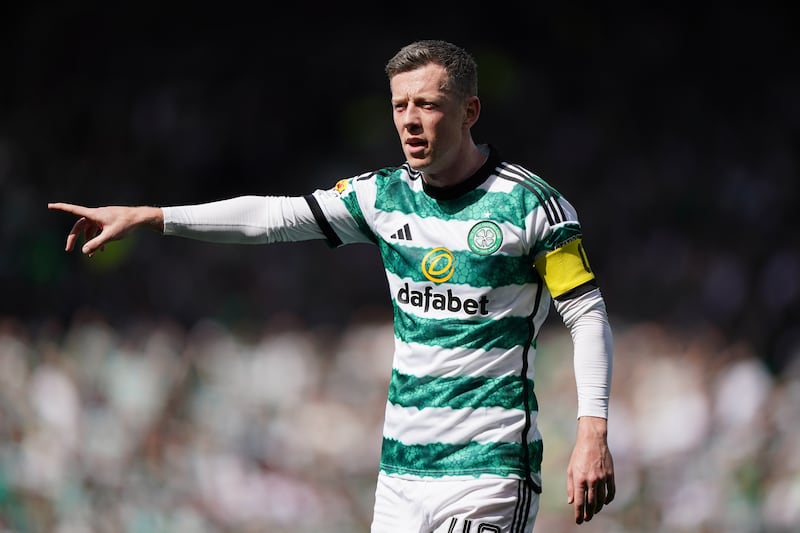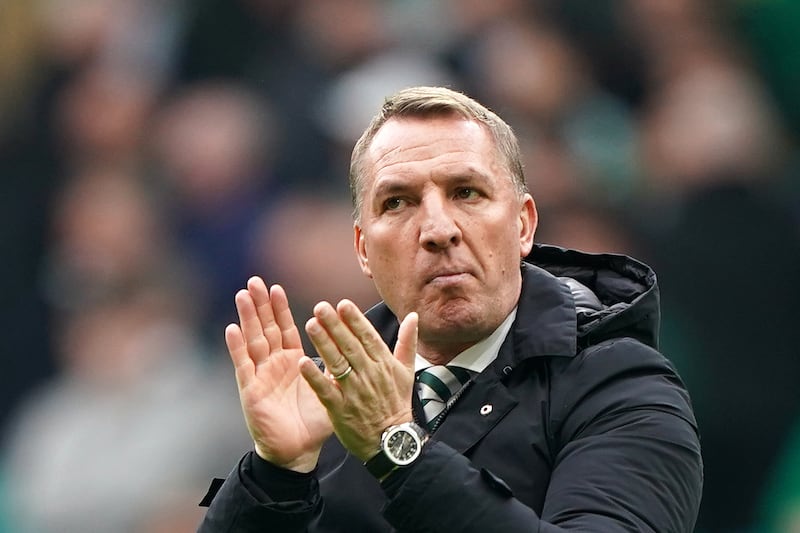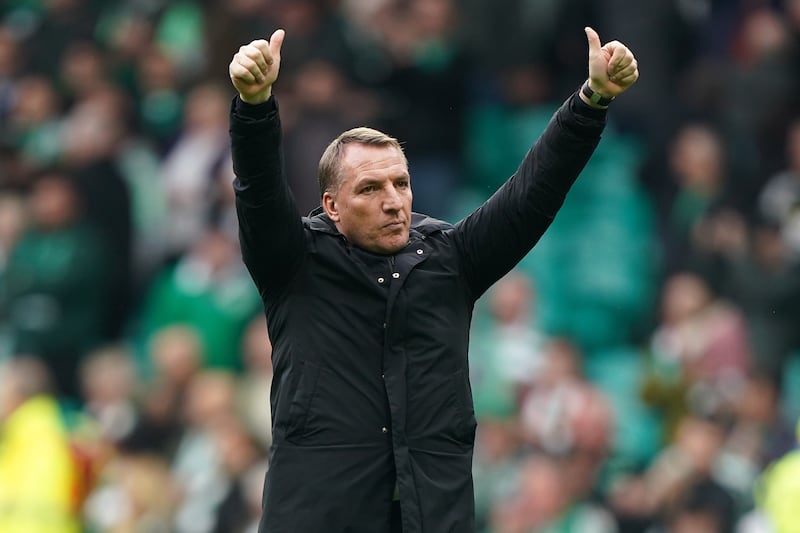'The Scottish Cup: Celtic's Favourite Trophy', by David Potter (Pitch Publishing, RRP £16.99)
At the time of publication earlier this year the main question about Celtic retaining the Scottish Cup appeared to be 'When?'
Rivals Rangers were knocked out so the Celts were well on course for the quadruple treble, having already won the League Cup and coasting clear at the top of the Premiership.
The nine-a-row was secured, albeit with that competition prematurely curtailed by Covid-19, but Celtic's downturn in form this season has put 'the 10' into serious doubt.
The Hoops will still be favourites this Sunday in the delayed Scottish Cup Final against the Gers' conquerors, Championship side Hearts, but the 'fear factor' is now surrounding the men in green and white, not enveloping all their opponents.
Another Cup loss, after early ends to the involvement in this season's League Cup and both the Champions and Europa Leagues, would surely signal the end of manager Neil Lennon's time in charge.
So David Potter's book 'The Scottish Cup: Celtic's Favourite Trophy' is a timely reminder of the importance of that famous trophy to the Parkhead club.
Celtic reached the final in their first season, 1888-89, and it was their first major triumph, in 1892 – at Ibrox, to boot, beating Queen's Park 5-1. The celebrations were spectacular. The 'Scottish Referee' newspaper noted that 'Truly the East End was a perfect turmoil until the very early hours of the Sunday, and many of the crowd won't be able to get over the rejoicing racket for days to come'.
Queen's Park were the Cup kings for a while but, like the Scottish League, it soon largely became a battle between Celtic and Rangers.
Celtic have almost always led the way in that race, but Rangers caught them up in 1963, during a dreadful time for the Hoops, which showed few signs of improving. Indeed the Light Blues completed a Scottish Cup hat-trick the following year, having beaten Celtic again en route to the final, as Potter recalls:
'1964 was awful. Rational people would have given it all up, but we were Celtic supporters.'
Yet the wheel turns, and Jock Stein was the driver.
The Scottish Cup has always held significance for Celtic, not least when victory in the oldest competition ended the 11-year trophy drought in 1965.
Rangers moved ahead again after a final replay victory over the Celts in 1966, but Celtic were a team and a club transformed under Stein, and emphatically got their revenge in the 1969 decider – 4-0 – and have always been atop the roll of honour since then, with their arch-rivals joining them only once, in 2003.
The scenes after the 1980 showdown, won by Celtic, led to an alcohol ban at football matches, but the Scottish Cup has been about much more than Celtic and Rangers; indeed there were only 14 final meetings of 'the Old Firm' (not counting replays), the last of them in 2002. Still, Celtic enjoyed beating Rangers in their centenary season, 1988-89, to retain the trophy.
They'll likely hold on to it again this weekend, but Potter recalls the disasters too: 'Super Caley Go Ballistic, Celtic Are Atrocious' from the year 2000, and also going back to losing to Arthurlie in 1897, Celtic having started that match with only seven players, 'the game that sent shudders up and down Celtic spines for the next 60 or 70 years'.
That led to the appointment of Newry native Willie Maley (who had played in the 1892 triumph) as Celtic's manager, a role he held for the next 43 years, winning 14 more Scottish Cups.
If Celtic don't make it to number 40, it may mean the end for another Ulsterman boss. A victory might just mark an upturn in fortunes, as in 1995. Which leads me on to…
Fergus McCann v David Murray: How Celtic turned the tables on their Glasgow rivals by Stephen O'Donnell (Pitch Publishing, RRP £19.99)
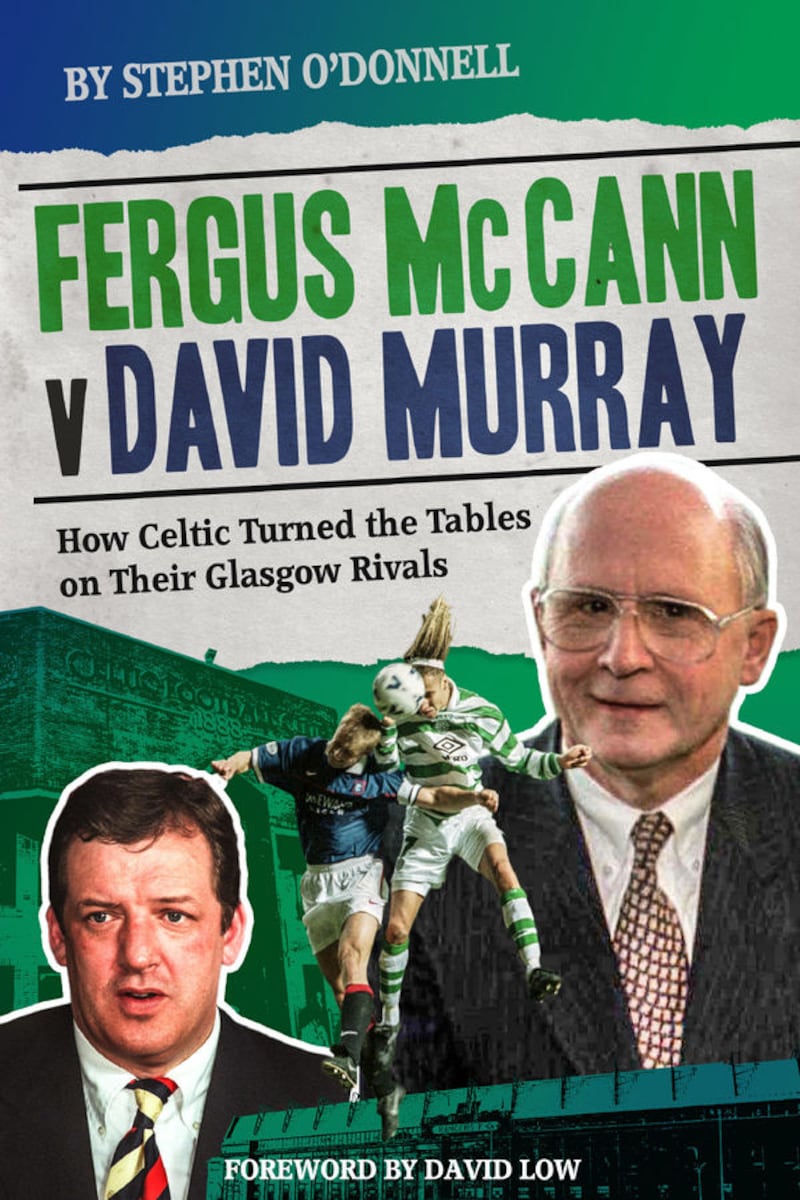
'Stephen O'Donnell is a freelance writer of football-themed fiction and non-fiction'. The critics of this book – of whom there will be many, undoubtedly – need only turn to the dust jacket for a jibe to throw at the author and its contents.
Yet while he would scarcely be believed if he had actually made up some of the shenanigans for the purposes of a thriller, what's detailed by O'Donnell in his forensic examination of the financial fortunes of the Glasgow giants, Celtic and Rangers, is the truth. Even if it hurts.
O'Donnell ranges knowledgeably over the history of both clubs, both before and after the time of the two main men, McCann and Murray.
That dynamic duo are the main focus, though. O'Donnell notes that "the two men could hardly have been more different.
"Murray, the Rangers chairman, at times appeared to be on a never-ending mission to indulge his ego, an unabashed showman, who was prepared to take extraordinary risks with his own, and in particular with other people's money, in the unshakeable belief that his plans would always come to fruition in the end…
"McCann, by contrast, Murray's counterpart at Celtic Park, gave the impression of a relatively low-key figure…a meticulous trained accountant, who was in for virtually all his worth, every penny was a prisoner."
McCann saved Celtic with his investment in March 1994 - in the midst of two seasons finishing fourth in that 'two-horse race' - patiently putting in place the foundations to challenge free-spending Rangers and, in 1998, stop them achieving an unprecedented 10-in-a-row.
The battle for Scottish league titles over the next decade or so was evenly matched – but the playing field wasn't level.
Celtic's approach may have frustrated fans, characterising it as penny-pinching rather than prudent, but while the lifestyle of a gambler may appear glamorous, eventually debts will be called in.
Rangers had been living beyond their means, living dangerously, and although the acronyms EBTs, HBOS, and HMRC may have meant SFA to most supporters, the Light Blues paid a heavy price as they sank further into the red.
The old saying may need to be paraphrased for legal reasons, but for too long Rangers had been borrowing from Peter (the friendly banker) to pay Paul (Gascoigne, et al – by means of a dubious employee benefit trust tax avoidance scheme).
O'Donnell skilfully sets out the fall of Rangers, depicting Murray's successor Craig Whyte as 'the designated patsy', insisting: 'What happened to Rangers under David Murray should be held up in Scotland, and beyond, as a classic test case of how not to run a football club…'
O'Donnell might have been wise to restrict his conclusion to these words: 'Nobody can predict what will happen in football of course.'
Some may now laugh at how he continued, although few would have quibbled when the book was published:
'The game's marvellous ability to defy expectations is part of its enduring appeal, but one thing seems certain: thanks to the contrary and very different approaches of Fergus McCann and David Murray at their respective clubs, Celtic are the dominant force in Scottish football once again, and are likely to remain in such a position at least for the foreseeable future.'
That is questionable in light of recent on-pitch events - but so is whether Rangers have truly changed their financial habits…
